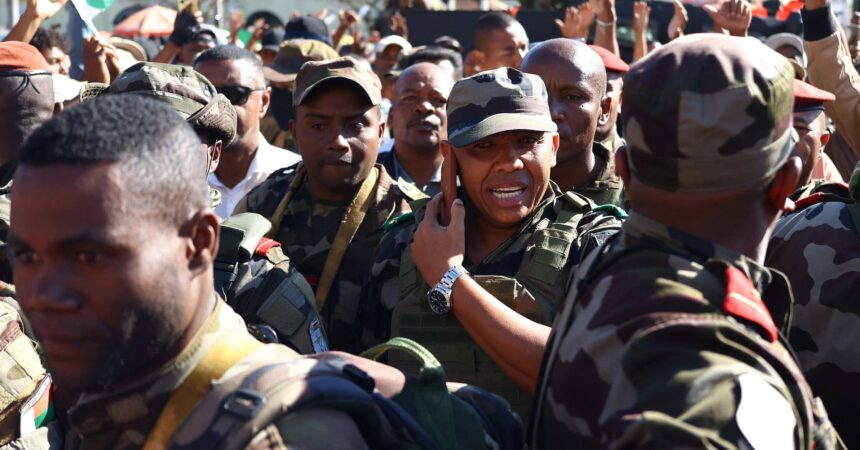A unit of Madagascar’s army has claimed that it has taken over the government after Madagascar’s Parliament impeached President Andry Rajoelina, escalating the political crisis in the country.
Pan-Atlantic Kompass reports that Madagascar’s parliament impeached the President amid the escalation of a crisis that began with demands for basic services.
The lawmakers on Tuesday, shortly before the impeachment votes, charged Rajoelina with alleged desertion of duty and breach of constitutional obligations.
“This is not just about one man; it’s about restoring democracy and addressing the failures that have left our people in the dark,” declared Siteny Randrianasoloniaiko, vice president of the National Assembly and a key opposition figure, during the heated session.
During the plenary, the lawmakers passed the resolution to impeach Rajoelina. The resolution received 130 votes in favour — well above the two-thirds constitutional threshold required in the 163-member chamber.
The impeachment resolution now heads to the High Constitutional Court for validation.
Pan-Atlantic Kompass reports that Madagascar’s Parliament impeachment the President hours after he issued a decree dissolving the assembly.
The decree to dissolve the assembly “shall enter into force immediately upon its publication by radio and/or television broadcast,” the presidency said in a statement published on Facebook.
Meanwhile, Rajoelina, a former DJ who rose to power through a 2009 coup and has served three terms, has swiftly condemned the proceedings as “unconstitutional” and “null and void” in a statement posted on Facebook, vowing to fight on from an undisclosed “safe place.”
Army Takes Control
After Madagascar’s Parliament impeached the president, a faction of the country’s army said it had taken control of the country.
“We took the power, all the institutions in the republic are dissolved,” Colonel Michael Randrianirina told reporters in the capital, Antananarivo on Tuesday.
“Perhaps in time it will include senior civilian advisers. It is this committee that will carry out the work of the presidency.
“At the same time, after a few days, we will set up a civilian government,” Randrianirina added.
Recall that the political crisis began after a Gez Z protest hit several parts of Madagascar. The youths expressed their frustration over chronic power and water shortages.
However, the protest has since snowballed into a broader indictment of Rajoelina’s leadership.
In an apparent move to douse the tension, Rajoelina fired his government on 29 September in response to the Madagascar Gen Z protests.
Rajoelina also appealed to protesters to give him one year, pledging to step aside if his final effort to meet their expectations and regain public support fails.
However, Madagascar youths rejected the President’s decision, describing it as insufficient, calling for the resignation of the president, as well as the leader of parliament and constitutional court judges, while protesters on the streets continued to shout, “Miala Rajoelina!” (Leave Rajoelina!).
Many of the protesters have decried the fact that Madagascar is one of the world’s poorest countries, with a GDP per capita of just $545 last year, according to the World Bank.
The protesters said the reason for the demonstrations is to press home their demands for a stable water and electricity supply. They said many citizens of the country are not enjoying basic needs that the government ought to be providing.
“People don’t have refrigeration for medication, don’t have water for basic hygiene, and then there’s massive corruption,” Ketakandriana Rafitoson, the global vice chair of Transparency International, said.
Meanwhile, the United Nations has disclosed that at least 22 people have been killed and more than 100 injured since the Madagascar Gen Z protests erupted on September 25.
UN High Commissioner for Human Rights Volker Türk expressed shock at the alleged violent response by security forces to the ongoing protests in Madagascar.





